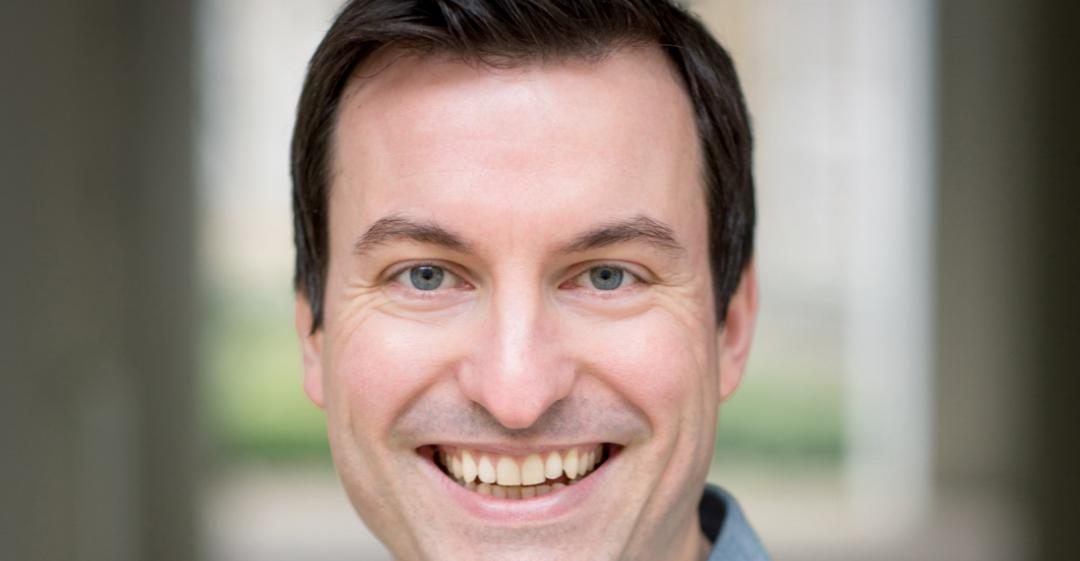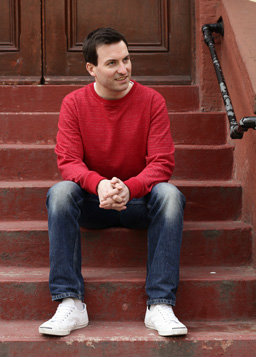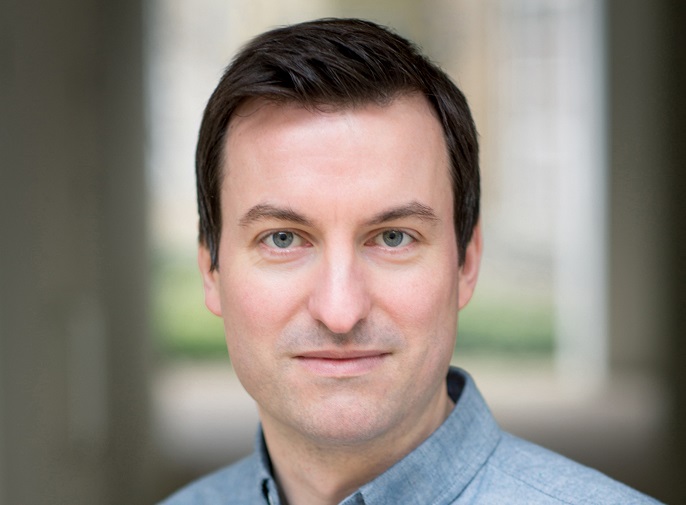“I had achieved so much of what I aimed for… but somehow I knew it wasn't for me.”

Newly Updated
What work were you doing previously?
I worked in the music industry.
I ran my own business providing label management services to US-based record labels. I also managed acts and ran my own label.
What are you doing now?
I've just finished my year as an On Purpose Associate.
On Purpose helps professionals from a wide variety of backgrounds transition into the social enterprise sector (more on this below).
I'm about to start a new job as Commercial Lead at Hubbub Enterprise, the business arm of an environmental charity called Hubbub.
How did you feel in your work before you decided to make a change?
Frustrated, confused and out of place.
It was a strange time because I had achieved so much of what I aimed for. I had my own successful business, worked with many of my favourite artists, got to travel and be part of a world that had always fascinated me. I also had a great team around me.
But somehow I knew it wasn't for me. Or at least, not forever.
Why did you change?
There were lots of reasons.
My relationship with music changed. Once it wasn't the be-all and end-all for me as a person, I was able to take a closer look at the industry.
I couldn't see anyone happy and successful in their middle-age who I felt could serve as a template for my career. And I didn't want to be chasing youth trends in my forties and beyond, faking enthusiasm for things I didn't like or understand, as so many people end up doing.
When was the moment you decided to make the change?
I came back from a business trip to LA and New York one Christmas.
I'd felt like an outsider looking in on my own career. I spoke to my girlfriend (now wife) and just decided to make a clean break.
How did you choose your new career?
Slowly, and with great difficulty.
I felt unable to find a new path while I was running my own company as it was all-consuming. I was able to sell it and take some time off.
I went travelling, got married, and learned how to relax again – which took a scarily long time.
After a year or so I tried to focus on my next steps. I knew I wanted to use my business skills. I knew I wanted to do something socially valuable. And I knew I needed to be proud of what I was doing, to find meaning in my work and its results.
I was interested in sustainability, the environment and socially responsible businesses. But I didn't know how to make the leap.
Are you happy with the change?
I'm thrilled.
I've discovered purposeful work related to an issue I'm passionate about, in a sector full of smart, forward-thinking and good-hearted people. I feel like I fit, and I'm learning new things all the time.
What do you miss and what don't you miss?
I miss the freebies!
Guest lists, free records, free clothes: the independent music industry might not make you rich, but you will never run out of t-shirts… But I mostly miss the moment when you know you have a brilliant record on your hands, you've just started to work on it, and everything seems possible.
I don't miss the culture. I think a lot of music businesses think that because they're in a creative sector, they don't need to be professional. In fact, sometimes they resist it. It has negative effects on artists and industry alike.
How did you go about making the shift?
I joined the On Purpose Associate scheme, which changed my life!
It's set up to help people like me who want to make a big jump. Associates work in two different social enterprises for six months each, and gain real on-the-job experience. On Friday afternoon there's training with your cohort of 15-20 peers, which could be on anything from storytelling to finance. Plus there's a strong personal development aspect to the programme. I really benefited from my two mentors and my coach throughout the year. And along the way you can't help but make new contacts and explore new ideas outside of the scheme itself.
The job at Hubbub was advertised through the On Purpose network. I'd just started to reach out to people in the areas I was interested in and had compiled a list of prospective companies to target. But the right job turned up at just the moment I was ready to start applying!
What didn't go well? What 'wrong turns' did you take?
I found my 'sabbatical' difficult at times.
Between the travelling and planning my wedding I was keeping busy, because that's what I was used to, but I lacked real purpose. Sometimes I felt isolated and unsure of how to spend my time.
It was also strange to lose all the status that came with my previous position, and to suddenly find myself no longer needed by all the people who had relied on me for so long. I knew it was coming but it was still a blow to my ego!
How did you handle your finances to make your change possible?
I had money from my business so I wasn't under any great financial pressure.
On Purpose paid a stipend to cover expenses for the year too.
What was the most difficult thing about changing?
Working out what I wanted to do.
Realising that after a decade in the music industry, some doors had closed on me.
Going backwards to move forwards!
What help did you get? 
As well as the On Purpose programme, my cohort of fellow Associates were brilliantly supportive and challenging.
What have you learnt in the process?
I've learned that my skills are more transferable that I expected.
Things I took for granted, such as a working knowledge of digital marketing techniques, are rare and prized in many other sectors. I suspect that's true for a lot of people: it can be easier to think about the obstacles to a career change than the reasons you might be valued.
And through the On Purpose programme I've learned enormous amounts about social finance, impact measurement, public sector reform, and much, much more!
What would you advise others to do in the same situation?
Listen to your gut.
I know it's a cliché. But if you're unhappy then carrying on as you are and not making the change is unlikely to end well.
We caught up with Alex recently to see how his shift was working out, two years on. Here's what he's been up to, and the biggest lessons he's learned.

What's changed for you in your career since we first published your story?
Quite a lot!
After nine months at Hubbub Enterprise I was promoted to Managing Director. I went from a sales and marketing role to managing a social enterprise through a period of rapid growth.
How do you feel about your work now?
I love it.
I relish the challenge of growing a business that's making a positive social and environmental impact as well as making a profit. And I really enjoy working with my colleagues at Hubbub; it's a really committed and creative group.
What challenges have you come up against since making your shift, and how exactly have you dealt with them?
Imposter syndrome, of course – but as people just assume I'm an expert I've learned to go along with it, and let my expertise catch up!
Recruiting and retaining talented people is hard, especially when you can't pay them what they could get in the private sector. I've thought carefully about what our team needs and how to improve our recruitment process. It's an ongoing process.
How is the financial side of things panning out, and is this what you'd expected?
So far, so good.
I took a step back when I joined Hubbub, compared to what I was earning when I ran my own business. But my promotion helped and our company is working to bring salaries in line with the sector.
What have you learned, since making your shift?
I've learned a lot about communicating environmental issues, how to engage people by using things they're already interested in, and the importance of positive and creative approaches.
I've strengthened my management of people, finances and projects. And I've learned to be more flexible and open-minded when I assess new opportunities.
Is there anything else you'd like to share?
I occasionally write things on Medium. You can find me here: medium.com/@alex_chase.
To find out more about the On Purpose Associate programme and apply, please visit https://onpurpose.org/.
What lessons could you take from Alex's story to use in your own career change? Let us know in the comments below.



